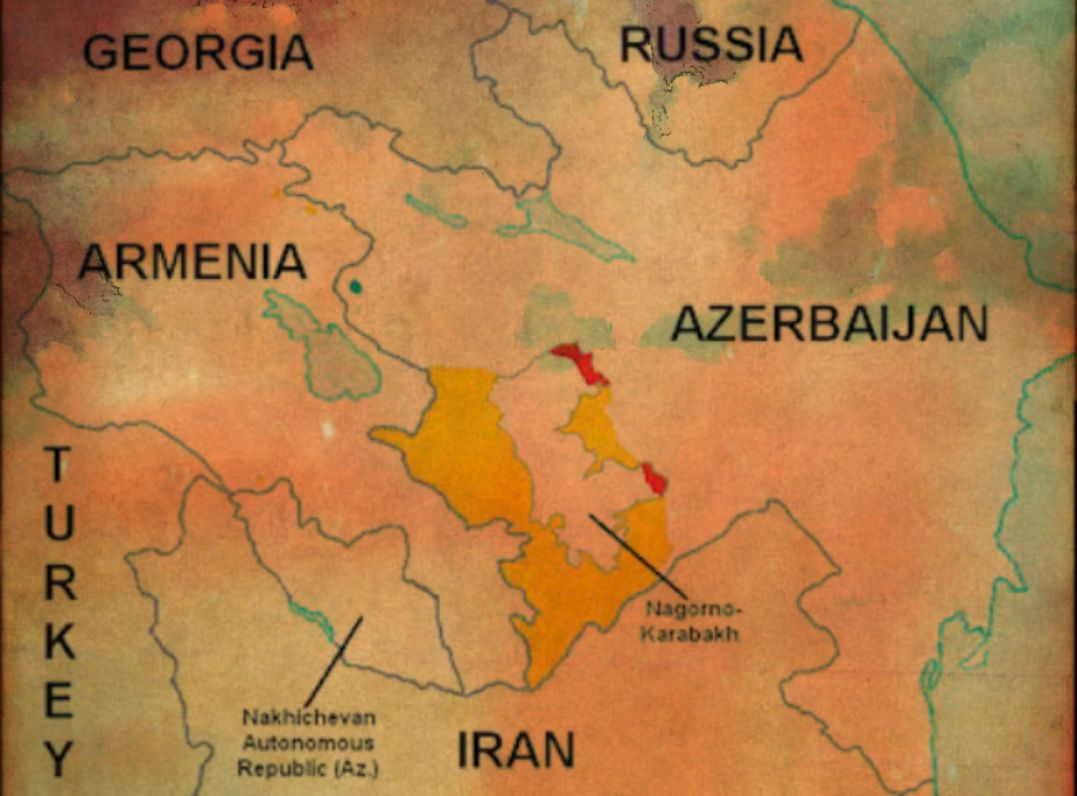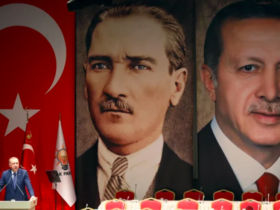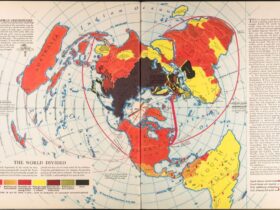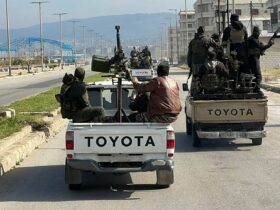The escalating conflict between Azerbaijan and Armenia requires close geopolitical analysis. Over the past week and a half, mutual bombardments have become commonplace on the border of two countries.
Almost 25,000 people in Azerbaijan expressed their desire to volunteer for the army. Artillery, tanks and drones are already being used in the conflict. In the meantime, the leadership of Armenia has not demonstrated a desire for de-escalation.
In order to understand what is happening, it is necessary to distract from the clichés abundant in the media.
A place of conflict
It is noteworthy that the escalation is observed not in the areas bordering on Nagorno-Karabakh which is occupied by Armenia, but on the border with Tovuz region of Azerbaijan. Not far from Tovuz district lies the Baku-Tbilisi-Ceyhan oil pipeline. In addition, the TANAP gas pipeline is located nearby.

Both pipelines bring energy resources to Turkey, therefore, Yerevan’s actions should be considered as directed against Ankara.
In addition to this, the Baku-Tbilisi-Kars railway is relatively close to the Tovuz region, which is part of China’s “Belt and Road” initiative. The hostilities in this area demonstrate not only the security threat to Turkey’s energy supplies, but also the fragility of China’s trans-Eurasian economic corridor.
Thus, the escalation directly threatens China’s interests. China is actively participating in the Baku-Tbilisi-Kars railway project. It is even more remarkable that in addition to China and Turkey, Russia has also expressed its desire to participate in the project.
On May 6, 2019, “Russian Railways” signed memorandums on development of cooperation with “Azerbaijan Railways” and “Turkish State Railways”. The documents envisage the possibility of building a 1520 mm standard railway line in Turkey, as well as attracting additional cargoes for transportation by container trains along the western route of the North-South Corridor. The parties intend to promote the growth of freight traffic along the routes Iran-Azerbaijan-Russia-Europe using the infrastructure of the Baku-Tbilisi-Kars railway.
Axis Beijing-Islamabad-Ankara-Baku-Moscow
In recent years, the geopolitics of the Eurasian continent have undergone major changes. A number of countries that were previously considered loyal allies of the US have turned away from their previous path. First of all, we are talking about Turkey and Pakistan.
Meeting in Islamabad: Clear anti-Western message in Erdogan words
Since the early 2000s Turkey has been systematically increasing its military, economic and diplomatic power, demonstrating its desire to play the role of an independent center in global geopolitics. After the 2016 coup attempt, Turkey entered into a protracted confrontation with the majority of NATO members, and primarily the US.
Meanwhile, economic and political cooperation between Ankara and Beijing is growing. Cooperation between Turkey and Russia is also intensifying. Despite multiple disagreements, the countries are effectively resolving the accumulated problems, and the creation of the Astana process on Syria was a truly revolutionary breakthrough that allowed for the displacement of destructive external forces working for the fragmentation of the region.
Pakistan, after joining the China-Pakistan Economic Corridor (CPEC) project, shifted from an Atlantic course to continental Eurasian geopolitics and became China’s main ally in South Asia.
At the same time, Pakistan’s cooperation with Turkey is growing. In February 2020, Turkish President Recep Tayyip Erdogan openly sided with Islamabad during his visit to Pakistan in the conflict with New Delhi over Kashmir.
Erdogan also promised to get Islamabad to lift international sanctions imposed for terrorist financing. It is noteworthy that these sanctions were imposed by the US and G7 countries only in 2018, against the backdrop of growing US-Chinese confrontation.
Turkish-Pakistani relations and cooperation date back many decades, since the Muslims of British India sent financial aid to Turkey in its War of Independence. Now the countries cooperate closely in military, economic, political and cultural spheres.
Pakistan is also an important partner for Azerbaijan. In June, President Ilham Aliyev called Pakistan a “close friend”. Pakistan traditionally supports Azerbaijan’s territorial integrity. Baku, in turn, has previously shown interest in military cooperation with Islamabad, in particular in the purchase of JF-17 Thunder fighter jets produced jointly by Pakistan and China. In the current conflict, Pakistan has supported Azerbaijan.
At the same time, Pakistan is interested in expanding relations with Russia. Thus, in late June, Pakistan’s Foreign Minister Qureshi said that Islamabad sought to strengthen ties with Moscow and their development.
The creation of the Beijing-Islamabad-Moscow geopolitical axis has long been in the minds of experts.
Russia is actively developing relations with Azerbaijan. It is no secret that Presidents Vladimir Putin and Ilham Aliyev have close personal relations with Azerbaijan. Azerbaijan, Russia and Iran are developing active cooperation in the construction of the “North-South” corridor. Azerbaijan thus becomes a key country participating in two Eurasian integration projects of BRI and the “North-South” corridor, which integrate the continent both northwards and westwards.
Yerevan vs. Beijing and Moscow
After Nikol Pashinyan came to power in Armenia in 2018, the country began to actively turn to the West. Pashinyan is the former head of the “The Way Out Alliance or Yelk Alliance “, which openly advocated secession from the custom union and military Alliance with Russia.
Immediately after Pashinyan came to power, he began political persecution of former President Robert Kocharyan, although he knew that Moscow considered him its man.
In Armenia, NGOs are active, aiming to hold “color revolutions” in the territories of the former USSR, including Russia. It was in Armenia that pro-American activists from the entire former Soviet Union gathered several times.
The largest US embassy in the region operates in Armenia, and the Soros Foundation and other American NGOs are active.
In the midst of the conflict with Azerbaijan, the Armenian leadership had made an exemplary anti-Russian gesture. Yerevan decided to withdraw Russian TV channels from the free state network. Moscow was made to understand that Russian TV channels could harm the national interests of Armenia.
At the same time, Yerevan, through the efforts of its propagandists, accuses Russia of not being in a hurry to support it and to throw in information one ridiculous another – until the appearance of “militants” from Syria in Azerbaijan. Armenia initiated a session of the CSTO, a military alliance with Russia at its head, and asked for help. What is happening is increasingly reminiscent of a provocation against Russia, in order to draw into conflict with Azerbaijan.
If this does not happen, the leadership of Armenia will use the conflict as an excuse to distance itself from Moscow, to stir up anti-Russian sentiment (Russian television was turned off for this purpose) and to get closer to the West.
At the same time, Armenia has a restrained position on China. Thus, despite the fact that in its words Yerevan supports the “Belt and Road” initiative, unlike Georgia and Azerbaijan, it has never put forward any real projects.
The only exception is the “North-South” corridor from Georgia to the borders of Iran.
Not long ago, Armenia joined the International Religious Freedom Alliance. Initiated by the United States, the International Religious Freedom Alliance stands on anti-Chinese position. Armenia’s cooperation with the alliance implies the use of Armenian media for anti-Chinese propaganda. The latter will have a negative impact on Armenian-Chinese relations.
Pro-American Course of Yerevan
Armenia is actively cooperating with the US in the reform of its state administration bodies. In fact, it is a question of putting the government under American control and cleaning up the unwanted under the pretext of corruption. Thus, the US State Department recently announced the search for an appropriate specialist.
The current aggravation on the border between Armenia and Azerbaijan coincides with the pro-American role of Yerevan. The countries that lose the most from the conflict are Russia and China. At the same time, Russia is losing as a geopolitical player, whose entire strategy in the region is based on maintaining balance and peace between Armenia and Azerbaijan.
China is losing as a geo-economic player. Once again, the key region for its projects is under threat of war. Chinese projects in Pakistan are also under similar threat as they pass through Kashmir.
Thus, Moscow and Beijing will rather work to prevent escalation of the conflict. In turn, this is not a good time for Turkey – given the situation in Syria and Libya – to intervene in the conflict on Azerbaijan’s side, although if such an issue arises, Turkey will have no doubts.
The US, on the other hand, is winning, as it may try to use the conflict to weaken Russia and China’s influence in both Armenia and Azerbaijan. Moreover, by provoking Azerbaijan, Washington may try to channel the dissatisfaction of the active part of the population into ousting the ruling regime.
Moreover, by trying to strangle Russia and Turkey by fomenting a conflict between Armenia and Azerbaijan, the Americans can strike not only at these countries, but also create serious obstacles to China’s continental strategy.
The giant continental alliance of China-Russia-Pakistan-Azerbaijan and Turkey with possible involvement of Iran will be under attack, which could create a basis for America’s counter attack and the maintenance of its planetary hegemony in Eurasia.
On the other hand, Armenia’s frankly pro-American behavior will deprive it of the support of Russia and China. If Ankara, Baku, Moscow and Beijing can effectively overcome the crisis in South Caucasia, Armenia will be isolated from Eurasian projects, which will condemn it to further economic decline, loss of interest from Moscow and enable Baku to realize the reintegration of Nagorno-Karabakh after some time.

















Leave a Reply